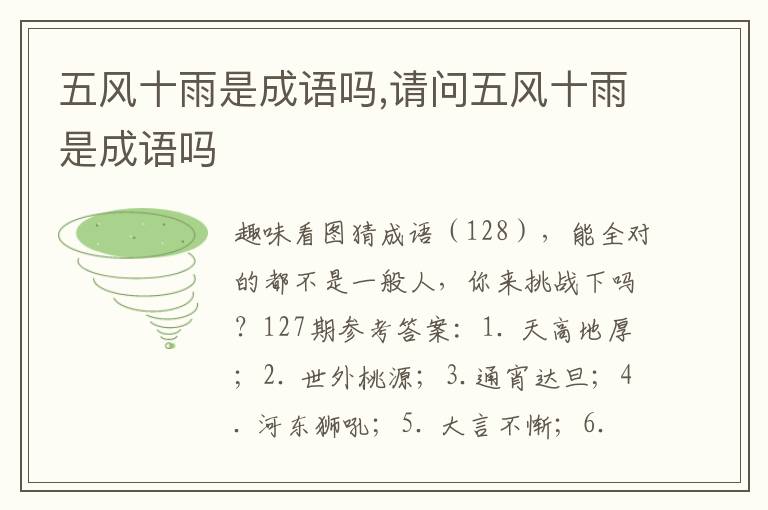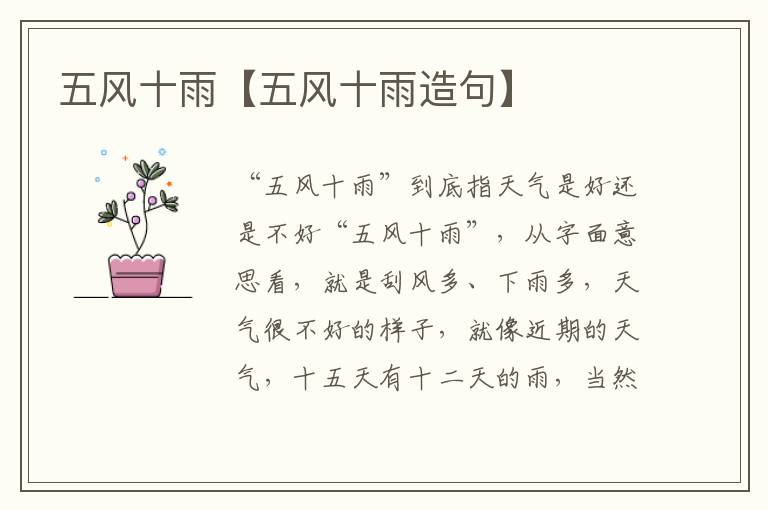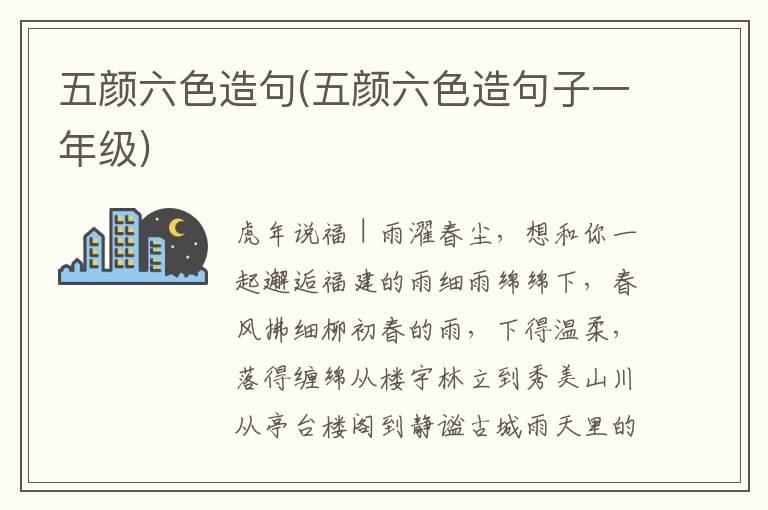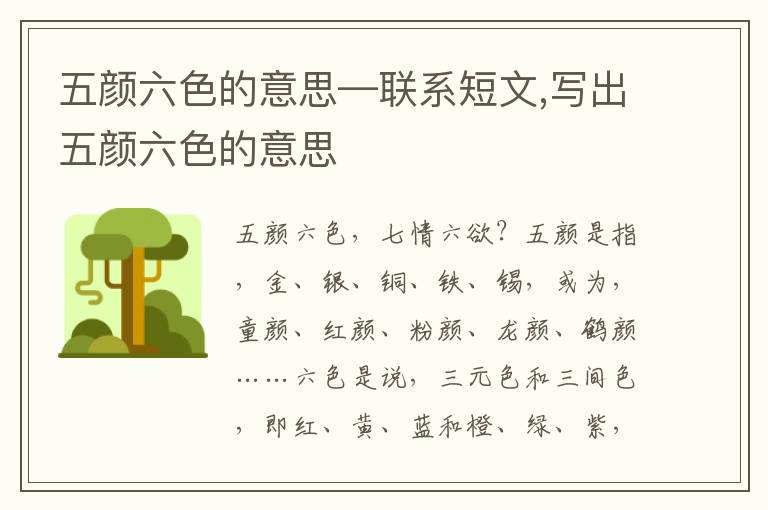技巧一:操作讲解:脑子有“图”,笔有“字”(图的感觉)
1.分解动作,使它们更加直观
他谢过那个人,接过缰绳,牵着小马朝我的方向走去。
洛先生见状,走到他身边,蹲下身子,用和善又关心的语气问道:“怎么了?”
他站在门前,胸口一紧,想着第二次被打扰的时候,老人会作何反应,他终于鼓起勇气敲了门。
场景一:你遇到了一个难题,并认真思考。
多么复杂又困难的数学题啊!小约翰一手托着下巴,摆弄着铅笔。下一刻,他在座位上坐立不安,不停地抓着头。我不知道如何计算。就这样了。
场景二:你成功登上山顶。
看着眼前壮丽的景色,清风拂面,我情不自禁地舒展双臂,歪着头,发出喜悦的叫声。
赏析例一:根据所给句子的内容和原文,依次写出下列句子。
例句:突然,一个男孩从拐角处跑过来,在我跳出去之前撞到了我。
【作品展示及欣赏】
学生句子1: 结果我们摔倒了,礼盒也掉到了地上。
学生短信2: 我们重重地摔在了地上,那盒礼物从我们手里飞了出去,扑通一声掉到了街上。
【点评】例句1只关注发生的事情,是一个故事。第2句中,杯子重重地落在地上,礼物飞了出来,重重地摔在了地上。杯子掉落的场景用了掉落、飞出、落地三个动作来表达。这句话不仅告诉你发生了什么事,还给句子增添了震撼力!要将单调的叙述性文字变成生动的描述性文字,分解动作,还可以添加声音。解释变得更加直观。
适当添加细节,使其更加直观。
除了描述人物的行为之外,我们还包括他们的心理和态度,在某些情况下,我们还补充了对适当环境的描述。
“油漆和粉末”行动
约翰低下头,恋恋不舍地转身,慢慢朝自己的房间走去。
他用抽泣的声音承认自己考试作弊,并后悔不已。
我没有片刻的犹豫,挤过人群,朝乐高角走去,继续喊着哥哥的名字,声音里却带着一丝焦急。
场景3:发现一只受伤的鸟。
一只燕子躺在前面的草地上,张开明显折断的翅膀。贝蒂看到它,快步走到这个可怜的小生物身边,弯下腰,小心翼翼地将它捧在手中,仿佛捧着一件珍贵而脆弱的宝藏。
为动作添加声音
为动作添加表情
深吸一口气,我鼓起仅存的勇气,轻轻敲了敲门,老者打开门,眼中闪过一丝怒意,冷声说道:“你怎么又来了!”男孩伸出双手,将狗雕像按在了老人的掌心里。 “为了我?”男人一脸疑惑的问道。男孩点点头:“希望你喜欢。” “谢谢你,”老人说,他的眼睛因泪水而红了。
场景四:久别重逢,回到家。
熟悉的景象映入我的眼帘。他情不自禁地握紧了行李把手,加快了向屋内走去的脚步。我的脑海里闪现出妈妈脸上惊讶和喜悦的表情。当他走到门口时,他停下来让自己平静下来。他推开门,眼睛里闪烁着期待的光芒,高兴地喊道:“妈妈,我回来了。”
“将心理学融入行为”
然而,当她突然出现在门口时,我很生气,只是冷漠地看了她一眼,无视她恳求的眼神,什么也没说。
夹在对精致靴子的强烈渴望和对圣诞节的忧郁之间,我在去鞋店的路上停下来。
情景5:我期待着假期。
他一动不动地坐在那里,双手托着下巴,心里想着他要去哪里度过他急需的假期。事实上,他这些天一直在绞尽脑汁地想出一个计划。我有一个主意——为什么不去海滩放松一下呢?“是的,是的!”他低声自言自语,嘴角扬起灿烂的微笑。
为操作“添加上下文”
我焦急地环顾玩具店,却不见他的踪影,外面雷声隆隆,耳边回荡着混乱的声音,一种深深的焦虑感笼罩着我,我泪流满面,我只能站在原地。黑暗中,绝望又无助。
更糟糕的是,火被扑灭后,整个荒野都笼罩在黑暗之中,看不到任何人,唯一支撑我们前进的就是无情的吹在我脸上的寒风,我心中仅存的最后一丝希望正在慢慢被侵蚀掉。
场景6:您发现自己被您最喜欢的大学录取了。
我手里紧紧地攥着录取通知书,心里掩饰不住的激动,上蹿下跳。我累了,就躺在草地上,伴着鸟儿的鸣叫声,哼着小曲。寒冷,但一阵微风吹进我的心,我摆脱了困扰我已久的焦虑。
感恩例2:比较下面两个句子,看哪一个更符合例1的情况。
1: 当我到达我的公寓并坐下时,感觉空气更温暖,房间看起来更明亮。
2: 当我到达公寓并倒在椅子上时,空气很冷,房间看起来比黄昏时更暗。
【分析】句子2比较一致。分析:当我回到家时,我和我的助手坐在椅子上很生气。此时此刻,我们的心情一定很沉重。如果你仔细阅读句子1和句子2,你会发现句子2更符合当时的情况。当我们心爱的礼物被摔成碎片时,我们既伤心又难过。这一刻,空气仿佛凝固了,整个屋子显得比之前更加沉闷。可以看到,通过添加符合情境的环境描绘,描绘变得更加生动。
写作例3:将下列句子省略的部分补充完整,并附上说明。
“这不公平!为什么会发生这种事?”艾登喊道,下唇颤抖着……
_______________________________________________
参考答案:“这不公平!为什么会发生这种事?”艾登哭了。她的下唇在颤抖,眼里充满了泪水,双手也在颤抖。
[分析]艾登哭了。下面的省略号组允许您添加特定于上下文的角色描述,以突出显示哭泣和悲伤的角色。例如,构建一张你的下唇颤抖、你的眼睛充满泪水、你的双手颤抖或你的心脏停止跳动的三维图像。
提示2:注意单词的结构并精炼句子和段落。
注重词语的质感,意味着准确地理解词语的意思,理解同义词的区别,理解词语的上下义关系,选择最恰当、最准确的词语来达到效果。详细解释。下面,我们将向您展示如何使用句子和段落来注意单词的结构。
鉴赏例5:比较下面两个句子,思考哪个更好,并解释原因。
1. 我们重重地摔在地上,那盒礼物从我们手里飞了出去,砰地一声掉到了街上。
2. 我们重重地摔在地上,礼品盒从我们手中掉到了路上。
【分析】第1句比较好。比较句子1和句子2,我们发现句子1中的“it fled out of my hand”(跳出)是一个夸张的用法,表示礼品盒落地的速度,然后砰的一声掉到了路上( (扑通一声掉在地上),说明礼盒已严重损坏。在第1 句中,两个纹理词“flying from”和“landing on.with thump”使页面上的图片的其余部分变得生动。
技巧三:句型多样:长句与短句混合,简单句与繁体句混合。
多么可爱的小马啊!她那修长的身躯,柔滑的鬃毛,悠闲的步伐,闪亮的马鞍,都让我着迷,无法移开视线。 (感叹号;名词短语;所以.那个句子)模式)
经过了一个世纪的时间,对靴子的渴望终于被购买火鸡的渴望所取代(名词从句)
我不断地想起母亲日复一日地工作,全家人都在为维持生计而奋斗的情景。
一个穿着制服的男人从黑暗的森林里走出来,他就是森林守卫!(倒装句)
她慢慢地转身,鼓起剩余的力气,弓着背,身体微微晃动,跌跌撞撞地走向黑暗(独立主格结构)。
感受到我声音中的真诚,他犹豫了一下,点点头,走向他最喜欢的蛋糕,害羞地问道:“我可以吃这个吗?”(非谓语动词)
约翰低着头,恋恋不舍地转身,慢慢走向自己的房间(复合结构)。
目光在雕像上停留,男人的脸色柔和下来,出乎男孩意料的是,他皱起了淡淡的微笑(介词短语)
当史蒂夫和我被带出森林时,我们结结巴巴地重复着我们衷心的感谢(副词从句省略)。
读取并写入高频语法
形容词作为副词
表的理由
_____________(羞愧和无助),埃里克开始哭泣。
__________________________________________________ (想知道里面发生了什么)埃里克推开门,溜进了房子。
【郁闷无助的感觉】
【我想知道里面发生了什么】
表结果
艾里克终于到达了山顶,_____________(饥饿但兴奋)。
埃里克被老师的微笑所鼓舞。 ________________________________(我对我的计划充满信心)。
[我很饿但很兴奋]
【对自己的计划充满信心】
包括桌子
_____________(冥想),玛丽一动不动地坐着,靠在门上。
____________________________(迷失在森林中),玛丽躺在一棵树下,____________________________(充满恐惧和绝望)。
【虽然很深】
【迷失在森林里,充满恐惧和绝望】
高频语法训练(一)
1.如果学生不能回答老师的问题,他们就保持沉默。
由于无法回答老师的问题,所有的学生都保持沉默。
2. 回家的路上,我看到一个中年男子碎尸万段地躺在路边。
回家的路上,我看见一个中年男子躺在路边,醉得很厉害。
3.艾瑞克害怕被骂,所以他想到了逃学。
艾瑞克害怕被骂,所以他想到了不去上学。
4. 他躺在床上睡不着,听着外面呼啸的风声。
他躺在床上,醒着,听着风的呼啸声。
5.玛丽跑进大门,脸涨得通红,气喘吁吁。
玛丽满脸通红,气喘吁吁地冲进了大门。
6. 杰克在房间里来回踱步,陷入沉思。
杰克在房间里来回踱步,陷入沉思。
7. 在直升机的帮助下,玛丽安全地走出森林,见到了她的丈夫。
在直升机的帮助下,玛丽走出了森林,找到了安全的丈夫。
8. 身陷迷雾,无助失落,只能哭泣。
我陷入浓雾中,感到无助和失望,只能哭泣。
9. 他们同意不再打架,并决心过上充实的生活。
他们同意不再打架,并决定过充实的生活。
10.我转向她,准备让她看到我眼中的愤怒和失望。
我翻身面对她,试图向她展示我眼中的愤怒和失望。
11.露西道歉说:“对不起。”她的脸上充满了羞愧和悔恨。
“对不起,”露西道歉,感到尴尬和悔恨。
12. 简绝望而疲惫地跪倒在地,泪水顺着脸颊流下来。
简绝望而疲惫地跪倒在地,泪水顺着脸颊流下来。
13. 露西犹豫了,不知道如何诚实、委婉地回答。
露西犹豫了,不知道如何在回答中将诚实和外交结合起来。
14.他们知道安慰她只会让她更生气,所以他们默默地听着。
他们默默地听着,意识到他们试图让她平静下来的努力只会让她更加恼怒。
15.哈利想看看店里的人群在看什么,所以他闯进了店里。
哈利好奇地想看看店里的人群在看什么,他慢悠悠地走进去,推门进去。
通过介词结构:with;without、at view of、on
(1)他头也不回地走了。
(2)当我看到那只凶猛的狼时,我产生了强烈的恐惧感,手心出汗。
(3)当她听到这个坏消息时,突然悲痛欲绝,忍不住痛哭起来。
(4) 那个风雨交加的夜晚,海浪很大。
ashing and the winds were howling Ž with复合结构 with +宾语(名词/代词)+ 宾语补足语(不定式、 分词、形容词、副词、介词短语、名词) ______________________________(泪水流下她的脸庞), words failed her. She fell asleep______________________________(灯亮着)。 ______________________________(东西买齐), they headed for the church. [With tears streaming down her face] [with the light burning] [With all the things bought] 高频语法训练(二) 1.女孩微笑着,长发在微风中飘动。 The girl smiled with her long hair flowing in the breeze. 2.他的妻子伤心极了,眼里满是泪水。 His wife was in deep sorrow with her eyes filled with tears. 3.天亮时Jane醒了,觉得头晕晕的。 It was daybreak when Jane woke up with her head spinning. 4.意外毁了他的计划,他愤怒地大叫了一声。 With his plan ruined by the accident, he let out a cry of anger. 借助非谓语做状语:doing; done; having done (1)表先后:having done (在...之后;已经...了) __________________________________________(已经走了很长一段时间了), she found her lost. ______________________________(已经失败三次了), he didn’t want to try again. [having walked for quite a long time] [Having failed three times] (2)doing/done 表原因(大多放主句前): Treated so unfairly, she howled in pain and anger. ________________________________(认出了这位顾客是谁), the manager was most apologetic and reprimanded the assistant severely. ______________________________(看到了我的所作所为), my mother frowned as if to ask me to stand up quickly. ______________________________(被老师责骂), he burst into tears. [Recognizing who the customer was] [Seeing what I did] [Scolded by the teacher] 表结果(大多放主句后): His father died, ______________________________(给他留下了一大笔钱)。 Everything around him was full of her presence, _____________________(不断重揭伤疤). [leaving him a lot of money] [continually reopening the wound] 表伴随(主句前后都可): She sobbed, hiding her face in her hands. A young man came to the police station, __________________________________________(被一群记者围着). ______________________________(忽略了她的话), the man walked away quickly. [surrounded by a group of journalists] [Ignoring her words] 高频语法训练(三) 1.在家复习了整整一个周末,他满怀信心地期待即将到来的考试。 Having reviewed his lessons for a whole weekend at home, he expected the coming exam with confidence. 2.她接连经历了那么多次失败后,终于振作起来了。 Having experienced so many failures one after another, she finally picked herself up. 3.在银行排队等了一个小时后,这个女人变得不耐烦,然后离开了。 Having waited in line for an hour at the bank, the woman grew impatient and left. 4.她在街上漫无目的地逛了好几个小时,感到有点饿,想吃点东西。 Having wandered aimlessly in the street for hours, she felt a little hungry and wished for something to eat. 5.向邻居们打了招呼后,我们开始搭起崭新的帐篷。 Having greeted our neighbors, we began to set up our brand-new tent. 6.说出真相后,他心里轻松了很多,心情放松地回家了。 Having told the truth, he felt easier in his mind and returned home with a lighter heart. 7.做好充分的准备后,她站在窗边,期待着女儿的到来。 Having made full preparations, she stood by the window, expecting the arrival of her daughter. 8.为了给裁判留下好印象,我花了很大力气,因此当知道自己没有赢的时候我们失望。 Having made a huge effort to impress the judges, I was rather disappointed on knowing that I didn"t win. 9.得到了我会在家里好好照顾母亲的承诺后,爸爸放心地把行李放进了他的后备箱。 Having gotten my promise of taking good care of my mother at home, my father rested assured and put his luggage into the trunk of his car. 10.因为承诺了五点之前我们一定到那儿,所以挡车抛锚的时候,我非常慌张。 Having promised that we would get there before five, I was seized with panic when the car broke down. 11.我小心翼翼地打开信,希望能找到一些有关钱包主人身份的线索。 I opened the letter carefully, hoping for some clue to the identity of the owner of the wallet. 12.他又沮丧又低落,低着头,走在队伍的最后。 Depressed and low-spirited, he walked at the end of the line with his head drooping. 13.他聚精会神地听着,咬着嘴唇,眼睛盯着地板。 He listened with close attention, biting his lips and staring at the floor. 14.“当然有圣诞老人啊”,奶奶说到,一边用手指拨弄着我的头发。 “Of course, there is a Santa Clause." Grandma said, stroking her fingers through my hair. 15.她感动累极了,坐在溪边,让疼痛的双脚放松一下。 She felt exhausted and sat by the stream, resting her aching feet. 16.她穿着圣诞老人的服装,悄悄溜进房间,没有被看到。 Dressed in a Santa Claus costume, she slipped into the room without being noticed. 17.Jane觉得冷得无法忍受,精疲力竭,完全不知道该如何应对这种可怕的情况。 Feeling unbearably cold and extremely exhausted, Jane was quite at a loss as to how to cope with the terrible situation. 18.Ronny沉浸在强烈的恐惧感中,一句话也说不出来。 Immersed in a strong sense of scare, Ronny couldn"t utter a single word. 19.他屏住呼吸,尽力不发出任何声音,免得让人知道他来了。 He held his breath, trying to not make the slightest sound that might betray his presence. 20.好奇心切,她从河岸边跑开,穿过田野去追兔子。 Burning with curiosity, she ran away from the riverbank and across the field to chase after the rabbit. 21.他痛苦地喘着气,强迫自己站了起来,迈着缓慢的步子,摇摇晃晃地开始走。 Gasping with pain, he forced himself to his feet and with slow, shaky steps, began to walk. 独立主格结构: (1)Tears filling her eyes(眼里满是泪水), she offered her heartfelt gratitude. (2)Her hands shaking(她的手挥舞着), she was on the verge of tears. (3)He smiled, his eyes full of laughter(眼里带着笑意). ‘ 倒装结构 1. 完全倒装 ① 以副词there, here, away, down, off, in, out等副词或者in the room, on the wall等介词短语为首时,后面的主语为名词时,需要用全倒装;主语若为人称代词,则不用倒装。 The door opened and in came Mr. Wang. In front of the school stands the hospital. 倒装句改装练习(一) 1.柜台后面是一位老太太,她帮我找到了我祖父的唱片。 正常:An old woman was behind the counter, who helped me find my grandfather’s records. 倒装:Behind the counter was an old woman, who helped me find my grandfather’s records. 2.现在轮到你做一个简短的演讲了。 正常:Your turn to make a short speech comes now. 倒装:Now comes your turn to make a short speech. 3.山顶上坐着一个巨人。 正常:A giant man sat on the top of the mountain. 倒装:On the top of the mountain sat a giant man. 4.从黑暗中传来一个她从未听到过的声音。 正常:A voice she never heard before came out of the darkness. 倒装:Out of the darkness came a voice she never heard before. 5.在前门站着她的丈夫汤姆. 当她无处可寻时他非常焦虑。 正常: Her husband, Tom, who suffered great anxiety when she was nowhere to find., stood at the front door. 倒装:At the front door stood her husband, Tom, who suffered great anxiety when she was nowhere to find. 6.一颗闪闪发光的白珍珠掉进了他的手指里 正常: A shiny white pearl into his fingers fell. 倒装: Into his fingers fell a shiny white pearl. 2.部分倒装 ① 在so/such…that…结构中,当so/such…位于句首时,后面的从句需要考虑使用倒装。 ② “only + 状语”置于句首时,句子需要使用部分倒装。 ③ 否定词none, neither, nor, never, hardly, scarcely, barely, little, seldom等或at no time, in no way, under no circumstances, by no means, not until, not only, not a single word等表示否定意义的短语放于句首时,句子也要部分倒装。 Ø not only……but also Not only did he make a promise, but also he kept it.他不仅许下了诺言,而且遵守了诺言。 Ø No sooner….. than.../ Hardly....when...一…..就... Hardly had Tom got off when he dashed to his beloved wife.汤姆一下车就冲向他心爱的妻子。 Ø not…..until Not until her husband came did she get any help.直到他老公冲过来,她才有的救 Ø never Never will I leave you again!我再也不会离开你了! Ø little Little did I know that this trip was going to be a special one.我不知道这次旅行会是一次特别的旅行。 Ø in no time In no time did an absolute darkness rule the forest.顷刻间,黑暗统治了森林。 Ø in no way “In no way will I go back to that hell-like place. Never will anything to do with her disturb me any more.” he roared in his heart like a lion.他在心里怒吼着:“我绝不回到那个鬼地方。我要忘却一切和她有关的人与事。” Ø 虚拟语气条件句中的 “if I were/ had / should....” 改为“Were/Should/Had I…” Looking back, I feel I wouldn’t be able to ride a bike had I lost heart.回首往事,我觉得如果我失去了信心,我就不能骑自行车了。 ④ as表示尽管时,后面的形容词、名词、副词等成分必须置前;though在这种情况下,是否倒装都可以。 例句1:尽管他在家,他仍继续干农活。 正常:Though/Although/While he was, he still went on with his farm work. 倒装:Exhausted as/though he was, he still went on with his farm work. 例句3:虽然她心不在焉,健忘,但她总是让我们知道她有多爱我们。 正常:Though/Although/While she is absent-minded and forgetful , she never fails to let us know how much she loves us. 倒装:Absent-minded and forgetful as she is, she never fails to let us know how much she loves us. ⑤ such位于句前做表语 ________________________(这就是我们的家) in the future. ________________________that where there is a will, there is a way.这就是有志者事竟成这个真理。 _________________________— a little bit more efforts and a little bit more determination will create a little bit more miracle.这就是成功的秘诀,多一点努力,多一点决心,你就能创造出多一点的奇迹。 [Such is our home] [Such is the truth] [Such is the key to success] 倒装句改装练习(二) 1.我们如此渴望赢得这场比赛,所以我们应该做好准备。 正常:We are so eager to win the game that we should prepare for it. 倒装:So eager to win the game are we that we should prepare for it. 2.他开车太不小心,差点死掉。 正常:He drove so carelessly that he almost killed himself. 倒装:So carelessly did he drive that he almost killed himself. 3.天太黑了,他看不见同伴的脸。 正常:It was so dark that he couldn’t see the faces of his companions. 倒装:So dark was it that he couldn’t see the faces of his companions. 4.简激动得忍不住哭了起来。 正常:Jane was so excited that she couldn’t help weeping. 倒装:So excited was Jane that she couldn’t help weeping. 5.考试时,我紧张得头脑一片空白。 正常:During the exam, I was so nervous that my mind went blank. 倒装:During the exam, so nervous was I that my mind went blank. 6.他非常绝望借酒浇愁。 正常:He was so desperate that he drowned his sadness into wine. 倒装:So desperate was he that he drowned his sadness into wine. 7.她是如此羞愧以至于脸如充血般发烫。 正常:She was so ashamed that she could feel the blood rush to her face. 倒装:So ashamed was she that she could feel the blood rush to her face. 8.当简只是在这种无助的情况下,她意识到她深爱的汤姆对她意义重大。 正常:When Jane was only in such helpless situation, she was aware that her beloved Tom meant so much to her. 倒装:Only when Jane was in such helpless situation was she aware that her beloved Tom meant so much to her. 9.他们意识到,只有经过这段生命冒险的旅程,他们之间珍贵的爱才能战胜生活中的每一个困难 正常:They realized the precious love between them could conquer every difficulty in life only after this life-risking journey 倒装:Only after this life-risking journey did they realize the precious love between them could conquer every difficulty in life. 10.在那一刻, 我相信施密特先生和我爷爷是对的:决不能伪造奖项,也不能购买. 正常: I believed that Mr. Schmidt and my grandpa were right: never can awards be falsified or bought only at that moment 倒装: Only at that moment did I believe that Mr. Schmidt and my grandpa were right: never can awards be falsified or bought. 11.简不仅精疲力尽,饥肠辘辘,而且对自己的无理行为深感遗憾。 正常:Jane was not only exhausted and hungry, but she was also deeply regretful for her unreasonable behaviors. 倒装:Not only was Jane exhausted and hungry, but she was also deeply regretful for her unreasonable behaviors. 12.简刚看到这些浆果就意识到她有多饿。 正常: Jane had no sooner/hardly seen these berries than/when she realized how starving she was. 倒装: No sooner/Hardly had Jane seen these berries than/when she realized how starving she was. 13.简一生中从来没有这样后悔过。 正常:She had never before in Jane’s life been so overcome by regret. 倒装:Never before in Jane’s life had she been so overcome by regret. 14.多拉从来没有收到过这样的礼物 正常:She had never in her life tasted anything better. 倒装:Never in her life had she tasted anything better. 15.奖励绝不能伪造或购买。 正常:Awards can never be falsified or bought. 倒装:Never can awards be falsified or bought. 16.简冲向岩石,很快就爬了上去。 正常:Jane rushed to the rock and climb onto it in no time. 倒装:In no time did Jane rush to the rock and climb onto it. 17.如果我年轻两岁,我会做点什么。 正常:If I were two years younger, I would do something. 倒装:Were I two years younger, I would do something. 18.她虽然筋疲力尽了,但还是不停地大喊大叫。 正常:Though/Although/While she was exhausted, she still kept yelling at the top of her lung. 倒装:Exhausted as/though she was, she still kept yelling at the top of her lung. 19.尽管他感到筋疲力尽,疲惫不堪,但他仍然坚持这个计划。 正常:Though/Although/While he felt exhausted and tired, he still stuck to the plan. 倒装:Exhausted and tired as he felt, he still stuck to the plan. ’ 虚拟语气 句型升级应用实例 句型1 wishing...希望... 1.He sat there, wishing he had stayed at home then.(与过去事实相反:had done) 2.He turned over the photo album, wishing that he had joined the party last night. 句型2 Given one more chance, I would...如果再有一次机会,我会... 1.Given one more chance, I wouldn’t let my parents down. 2.Given one more chance, I would definitely make it better. 高频语法训练(四) 1.如果我多等一分钟,我就坐上汽车了。 If I had waited for one more minute, I would have caught the bus. 2.如果我们中有更多人看重家庭而不是金钱,这个世界就会更美好。 If more of us valued family above money, it would be a better world. 3.如果没有挫折,我们的人生就不会充满精彩的故事。 Without setbacks, our life would not be filled with wonderful stories. 4.他无法想象如果Henry不来救他,会发生什么。 He couldn"t imagine what would have happened if Henry hadn"t come to his rescue. 5.要不是Mr Rowe的耐心和鼓励,Steve是无法最终实现他的梦想的。 Had it not been for Mr.Rowe"s patience and encouragement, Steve wouldn"t have achieved his dream at last. 6.如果妈妈没有那么健忘的话,我们就不用再回去取东西了。 Had mom not been that forgetful, it would have saved us the trouble of going back again to fetch things. 7.Steven尴尬地低下头,真希望刚才没有口误。 Steven lowered his head with embarrassment, wishing he hadn"t made that slip of tongue. 8.要不是这次经历,我就不会意识到我应该花更多的时间和家人在一起。 But for this experience, I wouldn"t have realized that I should spend more time with my family. 9.再给我一次机会的话,我不会再以外貌来判断一个人。 Given one more chance, I wouldn"t have judged a person by his appearance. 10.“要是我当初听取了妈妈的建议该多好!”小女孩低声对自己说。 “If only I had listened to my mother"s advice!"the little girl whispered to herself. 11.要是没有Eric当时的鼓励,我可能接下来的一天都仍然沉浸在悲伤的情绪里 Without Eric"s encouragement, I would have been immersed in sorrow for the rest of the day. 12.如果没有这些钱,这个人可能会一整晚埃饿,失去对生活的希望。 Without this money, the man might have starved the whole night and lost hope for life. 13.如果再给我一次机会,我会毫不犹豫地与他分享我的食物。 Given one more chance, I would share with him my food without hesitation. 14.如果我没有和Tom砂架,就不会被困在这个可怕的地方,面临死亡的危险。 Hadn"t I quarreled with Tom, I wouldn"t be trapped in this awful place, confronted with the danger of death. 15.伙伴们都在到处跑着,玩得很开心,可Susan却独自坐在草坪上,希望自己此刻在家里。 Her companions were running about enjoying themselves, but Susan sat alone on the grass, wishing she were at home this moment. “ 名词性从句 读后续写中常用到的两类名词性从句是:it做形式主语的主语从句以及同位语从句 ①主语从句 It做形式主语,真正的主语在that后 1. It suddenly occurred to him that the family inside was in danger. 2.It hit me all of a sudden that I had forgotten her birthday. ②同位语从句 对前面的抽象名词进行解释说明 1.The fact that she didn"t like me really hurt me. 2. They were shocked at the news that their hometown had been flooded 高频语法训练(五) 1.我突然想到她可能是在撒谎 A thought suddenly occurred to me that she might be lying. 2. Harry完全不知道他们在说什么。 Harry doesn"t have the slightest idea what they are talking about. 3.我从未想到我们学校的篮球队会在决赛中败北。 It never occurred to me that the basketball team of my school would be defeated in the final. 4.他们应该再次尝试的想法值得考虑。 The idea that they should try a second time is worth considering. 5.我们一起来讨论这个话题的主意真是让我松了一口气。 The idea that we discuss the topic together is really a relief to me. 6.我突然意识到,与另一支队伍比赛是一个很好的学习机会。 It struck me all of a sudden that playing against the other team is a great learning opportunity. 7.尽管训练生活很辛苦、但我珍惜每一个幸福时刻。 I enjoy every happy moment despite the fact that training life is really difficult. 8.他竞赛获得一等奖的消息传来,我们又高兴又激动。 Word came that he had won the first prize in the competition, making us delighted and excited. 9.她突然想到她妈妈到现在还完全不知道发生了什么事。 It occurred to her that her mother was still ignorant of what had happened. 10.一想到她的努力可能会付之东流,她就悲痛难忍。 She is seized with sorrow at the thought that her efforts might be in vain. 11.我突然意识到,金钱无法弥补过去五年里他所遭受的苦难。 It suddenly dawned on me that money couldn"t make up for what he had suffered in the past five years. 12.想到我们可能在这样的黑暗中迷了路,我吓得浑身发抖。 The thought that we might have got lost in such darkness sent shivers down my spine. 13.Jack脑海里涌起一个可怕的想法,这个人可能会为了偷房子里的贵重物品而 The awful thought crowded in Jack"s mind that the man could probably do harm to the family in order to steal precious belongings in the house. 14.Jack突然想到一个主意,他可以扔一些石头到房子里,把这家人吵醒。 An idea flashed into Jack"s mind that he could wake the family by throwing some stones into the house. 15.我接受了父亲的建议,要成为一名医生,虽然我对这样的前途毫无把握。 I accepted my father"s suggestion that I should become a doctor,though the prospect I"m not sure at all. 技巧四:无灵主语改装法无灵主语的概念极为简单:用无生命的事物做主语来展开句子。其实,这种句式结构它向我们传达的只是一种思维模式,即一种思考的方式而已。 例子:I love everybody.我爱大家。 如果出现在口语中,这样的表达当然最为清晰 但如果出现在写作中,下面的表达可能更为生动一些: My love goes to everybody. 从例子可以看出,用客观的事物love代替有生命的I,这就是无灵主语的实质。 我们用下面的公式来表达,就是: 无灵主语句=无灵主语+有灵动词 “无灵主语”简单理解就是“没有生命力”的东西做主语。比如时间,地点,自然现象等。“有灵动词”简单理解就是把没有生命力的东西,赋予有生命力的动作。 比如上一句My love goes to everybody.中love就是没有生命力的名词,但是go就是有生命力的动词。 ¢ 使用无灵主语的优点 优点1 往往在写作时,我们会反复用同一有生命的词作主语,使语句显得单调,重复。 例1 We don’t think so. If we want light, we must conquer darkness. 我们并不这么认为。如果我们想要光明,我们就必须征服黑暗。【三个we的使用,使句子显得平淡,甚至别扭】 改为无灵主语后: We don’t think so. If we want light, darkness must be conquered. 我们并不这么认为。如果我们想要光明,黑暗就必须被征服。 优点2 将无生命的事物作主语而展开的句子,往往会用上比喻、拟人等修辞手法,语言随之提升一个档次。 这也就是无灵主语的难点所在,也是华丽之处。需要注意的是,并不是简单的主动语态变为被动语态,而是用主动语态去表达被动意义。 例2 I forgot his name.我们忘了他的名字了。 【并不是简单地变为被动,而应当更为形象的用主动语态表示。】 改为无灵主语后: “他的名字溜出了我的大脑。”His name slipped my mind. “他的名字没有在我头脑中扎根。”His name didn"t take root in my mind. 例3 He was so nervous.他很紧张。 改为无灵主语后: A wave of nervousness washed over him.一阵紧张的情绪席卷了他。 例4 He was excited.他很兴奋。 改为无灵主语后: Excitement seized him.兴奋(这种情绪)抓住了他。 优点3 主语是有生命的事物时,展开的句子往往带有该有生命物质的主观感情色彩,而如果是无灵主语,则表达很客观。 例5 比如:“我们从生活中学到...... ” 改为无灵主语后: 可以表述为“生活告诉我们......” 也就是: Life has told us that... 比如: “海外华人时刻关注祖国。 ” 改为无灵主语后: 可以表述为“祖国时刻牵动着海外华人的心” Motherland, always, is drawing the heart of overseas Chinese. ¢ 无灵主语的应用五大类: 第一类:主语是表示情感状态的抽象名词 这类名词有fear恐惧,excitement兴奋等。 与之对应的动词有:seize(侵袭,突然控制), choke(使哽咽),flood(使大受感动,充满),creep(不知不觉地产生), grip(紧抓),give way to(被…代替) 等词。 请看下面的例句: (1)Panic seized her. 她突然惊慌失措。 (2)Despair choked her words. 她绝望得说不出话来。 (3)A great sense of relief flooded over him. 他深感宽慰。 第二类: 主语是表示时间和地点的名词 这类名词有:the town(镇),the following year(第二年)等。 与之对应的动词有:witness(见证), find, see, boast(有引以为荣的事物)等。 请看下面的例句: (1)Beijing has witnessed great changes in recent years. 北京见证了最近几年的的巨大变化。 (2)The following year saw the death of his mother. 第二年他的妈妈去世了。 (3)The town boasts a beautiful lake. 这个镇引以为荣的是有个美丽的湖。 第三类:主语是表示自然现象等名词 这类名词有:fog雾、earthquake地震等。 与之对应的动词有:blanket(覆盖), come, bring, prevent, strike, hit, threaten 等词。 请看下面的例句: (1)The thick fog blanketed the field. 浓雾笼罩着整个大地。 (2)An earthquake came like a thief in the night,without warning.地震到来,犹如夜贼,不作预告。 (3)The rain prevented tourists from enjoying the full moon.雨使得游客无法欣赏到满月。 第四类:主语是表示身体部位和音容等名词 这类名词有:face脸, laughter笑声等 与之对应的动词有:light up(照亮), brighten(照亮), linger(继续存留), well up(涌出), flash等词。 请看下面的例句: (1)Her face lit up/brightened when I gave her the present.我给她礼物时,她的脸上焕发出了光彩。 (2)Laughter lingered around the room. 笑声在房间里萦绕。 (3)When he saw the familiar handwriting, tears welled up in his eyes.他一看到熟悉的字迹,便热泪盈眶。 第五类:主语是表示行为和动作的名词 常见的表示行为或动作的名词有如sight, thought, glance, look, idea, feeling等。 与之对应的动词有:strike(打), arouse(唤起), remind, delight, frighten, overwhelm(压倒)等词。 请看下面的例句: (1)A terrible thought suddenly struck me. 我突然想到一个可怕的想法。 (2)The sight of the scene filled me with horror.想到这个情景我心中充满了恐惧。 翻译练习 (第一组) 1.他惊恐地瞪大了眼睛。 2.她笑了,眼里闪烁着兴奋的光芒。 3.她的眼里充满泪水。 4.那条狗饥饿的目光落在我的三明治。fall on/land on...(目光) 落在…… 5.她直视父亲的眼睛,诚实地回答了他的问题。 6.他似乎不愿意与我的目光接触。 7.她试图坐起来,目光紧盯着琼的脸。 8.他一刻不停地盯着我。 9.他进屋时眼睛扫视了整个房间。 10.他回答时垂下眼睛看着膝盖。 (第二组)1. 巴黎的服装广告使他大开眼界。 2. 这真使我开眼界。3. 电视真使人大开眼界。 4. 旅游使他大开眼界。5. 这让我大开眼界。 6. 听到这个消息,他绝望地把悲伤淹没在酒里。 7. 别让小狗离开你的视线。8. 女孩目不转睛地看着她美丽的新娃娃。 9. 他凝视这窗外的雪。 10. 那男人粗暴地冲她大声喊叫,她也怒目而视。11. 闭上眼睛,不许偷看! 12. 观众们张大了嘴巴呆呆地看着魔术师的表演。13. 她在考场上偷看教科书。 14. 亨利从窗户向厨房里窥视。 15. 我瞥见窗前有个身影。 16. 埃米莉回头看了一眼。 17. 他凶巴巴地环视房间,像是等待有人来挑战他。 18. 塔玛拉摇着头不相信地盯着他看。 19. 帕特里克坐着,茫然地看着前方。 20. 他羞涩地瞥了她一眼。 参考答案: (第一组) 1. His eyes were wide with horror. 2. She laughed, her eyes shining with excitement. 3. Her eyes filled with tears. 4. The dog’s hungry eyes fell on my sandwich. 5. She looked at her father straight in the eye and answered his question truthfully. 6. He seemed unwilling to meet my eyes. 7. She tried to sit up, her eyes fixed on Jean’s face. 8. His eyes never left mine. 9. His eyes scanned the room as he entered. 10. His eyes dropped to her lap as she answered. (第二组)1. The advertisements of costume in Paris2. What an eye-opener it’s been for me! 3. Television is a real eye-opener.4. Travel has greatly broadened his horizons.5. This has really opened my eyes. 6. Hearing the news, so desperate was he that he drowned sadness in wine. 7. Don’t let the puppy run out of your sight. 8. The girl gazed at her beautiful new doll. 9. He gazed out the window at the snow. 10. The woman glared at the man after he yelled at her. 11. Close your eyes, and no peeking! 12. The audiences gaped at the Magician’s performance. 13. She peeped at her textbook during the examination. 14. Henry peeped through the window into the kitchen. 15. I glimpsed a figure at the window. 16. Emily glanced over her shoulder. 17. He glared round the room as if expecting a challenge. 18. Tamara stared at him in disbelief, shaking her head. 19. Patrick sat gazing into space. 20. He glanced shyly at her. 技巧五:使用修辞手法 修辞手法其实已经融合在前面的几个技巧中,为了更明白,所以再单独解释几张常见的修辞手法 (1) 明喻(simile) 明喻是比喻修辞的一种,在强调两种事物的相似点的同时,本体、喻体、喻词都出现,且能使语言生动形象。喻词有like, as , as...as, as if, of, compared to, be similar to, what等。 Œ like 1. The smile on her face shone like a diamond. (情感描写)她脸上的笑容像钻石一样闪闪发光。 2. I feel like I am floating in an ocean of sadness.(情感描写)我感觉自己像漂浮在悲伤的海洋中。 3. The scenery along the journey is just like a breath-taking landscape painting. (景物描写) 沿路的风景就像一幅美丽的山水画卷。 4. The icy wind started howling, cutting my face like a sharp knife.(景物描写) 寒风开始咆哮,像锋利的小刀一样刺痛了我的脸。 5. Clusters of stars decorated the vast sky like sparkling jewels.(景物描写) 繁星像珊珊发光的珠宝一样装饰了浩瀚的天空。 as...as 1. The smile on her face was as vibrant as the sun on a summer day.(情感描写)她脸上的笑容和夏天的太阳一样充满活力。 2. Father rushed to his son"s school, only to discover the building was as flat as pancake(煎饼).(景物描写) 父亲冲到儿子的学校后,才发现这座建筑已经变成一片废墟。 3. I reached out to touch her face, which was as cold as the ice. (人物描写) 我伸手去摸她的脸,发现她的脸像冰一样冰冷。 更多搭配: as busy as a bee 忙忙碌碌 as hungry as a wolf 饥肠辘辘 as proud as a peacock 傲如孔雀 as easy as ABC极其容易 as brave as a lion 勇猛如狮 as pretty as a picture 美如画 Ž as if 1.Mrs Sather looked at my eyes as if (she were) seeing my inner self locked away inside. (动作描写) Sather老师看着我的眼睛,仿佛看到了我灵魂深处封闭的自我。 2. She swept her son into her arms with her eyes wet as if she wanted to squeeze the breath out of him.(动作描写) 她眼睛湿润,把儿子拥进怀里,仿佛想把他的呼吸挤出来。 3.Her hair grew greyer and greyer, as if( it were )covered with snow and frost.(肖像描写) 他的头发越来越白了,简直像盖了一头皑皑的霜雪。 4. She felt as if her heart had been ripped from her body.(情感描写)她感觉自己心好像从她的身体里被撕开了。 (2) 暗喻(metaphor) 暗喻是比喻修辞的一种,用一种事物比喻另一种事物,本体喻体都出现,中间常用喻词“是”等连接,有时不用喻词。暗喻的典型形式为:甲是乙,而不用like, as等喻词。 Œ be 1. Her hair was a flowing golden river streaming down her shoulders.(肖像描写)她的头发像是一条流淌在她肩上的金色河流。 2. The beautiful park was a scented carpet of color.(景物描写) 美丽的公园就是一个芬芳的彩色地毯。 3. Stop being such a baby. (人物描写) 别这么幼稚好不好。 4. Life is an unexplored river. full of twists and turns.(哲理) 生活就像一条未被涉足的河流,有各种曲折。 动词连接 1. I felt a lump in my throat, tearing welling up in my eyes.(情感描写) 我如鲠在喉,泪水湿润了眼眶。 2. He doesn"t have an idea of his own. He just parrots what other people say.(人物描写) 他没有自己的观点,只会鹦鹉学舌。 3. A heavy silence blanketed the room.(环境描写)整个房子沉浸在一片寂寞中。 4. The boy wolfed down the food.(动作描写)小男孩狼吞虎咽。 (3) 拟人(personification) Personification与汉语拟人完全相同,就是赋予物以人的语言属性。 Œ 把自然现象当作人来描写 1. The wind stood up and gave a shout . (景物描写) 大风凛冽,发出怒吼。 2. The breeze gently kissed her cheeks. (景物描写) 微风轻柔地亲吻着她的脸庞。 3. The feathery snowflakes danced in the night air, making a beautiful picture.(景物描写)鹅毛般的雪花在空中飞舞,像一幅美丽的图画。 4.The mist swallowed him up. (景物描写) 薄雾把他包围起来。 5.The icy wind started howling, stinging my face.(景物描写) 寒风开始咆哮,刺痛了我的脸。 6. Stars winked at me in a darkening sky.(景物描写) 夜空中星星向我眨眼睛。 7. Immediately, an absolute darkness ruled the forest.(景物描写) 顷刻间,黑暗统治了森林。 把含蓄抽象的概念当作人来描写 1. Fear seized/swallowed him.(情感描写)恐惧把他吞噬了。 2. Anger choked my words.(情感描写)我气得说不出话来。 3.A good idea suddenly struck me. 我突然想到一个好主意。 4. Smile took hold of him.(情感描写)他笑容满面。 5. Anxiety torn him into pieces.(情感描写)她焦虑不安,十分崩溃。 6. Courage/Confidence deserted him.(情感描写)他没信心了。 7. Excitement deprived me of all power of speech.(情感描写)我兴奋的啥也说不出来了。 Ž 把动物当作人来描写 1. In the dead of night, the crickets played on the terrace of the house.(景物描写) 寂静的夜,蟋蟀旁若无人地在房子的阳台上玩。 2. Birds on the tree are singing a beautiful song.(景物描写) 树上的小鸟在树上唱着美妙的歌曲。 3. The frogs are giving a concert---mixed chorus.(景物描写) 青蛙在举办音乐会---混声大合唱。 4.Fireflies patrol the grass with small lanterns (景物描写) 萤火虫提着小灯笼在草丛中巡逻。 (4) 夸张 (hyperbole) 夸张是比喻修辞的一种,是以言过其实的说法表达强调的目的,它可以加强语拾势,增加表达效果。 Œ 使用数词或量词 1. My heart broke in about a million pieces.(情感描写)我的心成了碎片。 2. She was half dead with fear.(情感描写)她吓得半死。 3. Thanks a million.非常感谢你。 4. I’ve told you a million times.我都告诉你多少次了。 5. The backpack weighs a ton.背包很重。 使用动词 1. The young girl brought the house down with her performance.这位年轻姑娘的表演博得了满堂喝彩。 2. It made me jump out of my skin. (情感描写)吓得我魂不附体。 3.I almost laughed my head off.(情感描写)我都快笑死了。 4. My blood froze.(情感描写)我的血液都凝固了。 5. She cried her eyes out. (情感描写)她痛哭涕流。 6. It brought her heart into her mouth.(情感描写) 让她的心悬到了嗓子眼。 7. My heart sank when he left.(情感描写)当他离开时我心都碎了。 Ž 使用形容词和副词 在日常对话中,人们常用形容词或者副词去修饰微不足道的事情,目的就是为了渲染一种气氛,强调某种意义的事情。 如副词:extremely;awfully;terribly;perfectly;horribly等等;形容词:miserable; horrible; splendid等等 1. It"s beautiful, heavenly beautiful.(景物描写) 那儿很漂亮,就像天堂那般漂亮。 使用介词短语 1. She went home in a flood of tears.(情感描写)她泪如泉涌地回家去了。 类似表达:She shed floods of tears. (使用动词) 2. When they told the news, I was over the moon/ on the top of the world.(情感描写)当他们告诉我这个消息时,我乐不可支。 3. He was bent out of shape.(情感描写)他非常生气(气到变形) 找出下列句子中的修辞手法 1. My very thought was like the ghostly rustle of dead leaves. 2.He looked as if he had just stepped out of my book of fairy tales. 3. Wind and rain now whipped the house. 4. The children wet from adult to adult like buckets in a fire brigade. 5.The wind sounded like a roar of a train passing by. 6. Household and medical supplies streamed in by plane, train, truck and car. 7.Yesterday, I went to the park. I rode my bicycle through the evergreen trees which were as tall as skyscrapers. The sun shone through e clouds, which were floating pieces of cotton candy in the sky. People were laughing and enjoying the company of their families and friends. I rode past a giant garden of beautiful pink, yellow and purple flowers:it was a scented carpet of color. The park is like a oasis in the city. 8.The wind whispers in the tree. 9. The noise was loud enough to wake the dead. 10. His speech brought the house down. 11. The old Venice fell asleep again. 12. The sun broke through the clouds and jumped out of the sea. 13. The birds danced happily on the branch. 14. She eats like a bird. 15. The loud music almost drove me up a wall. 16. The night gently lays her hand at our feverd heads. 17. The volcano spit out lava from its mouth.【读后续写写作策略及备考指导,读后续写题型解读】相关文章:
2.米颠拜石
3.王羲之临池学书
8.郑板桥轶事十则



